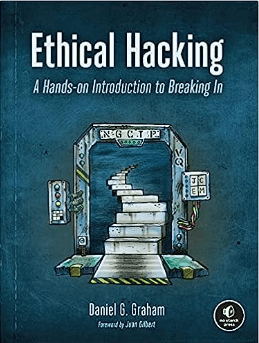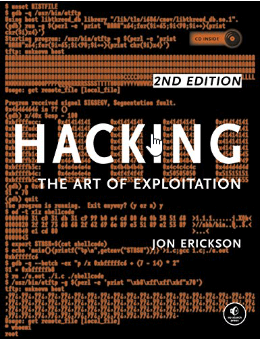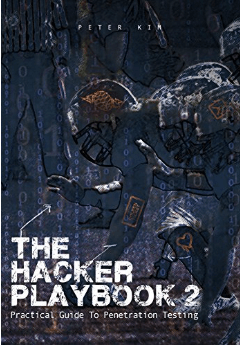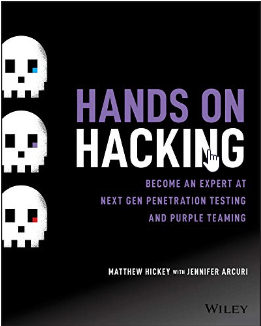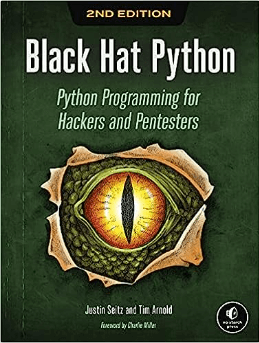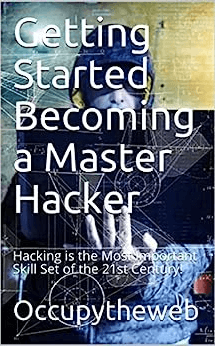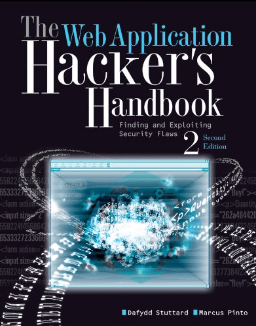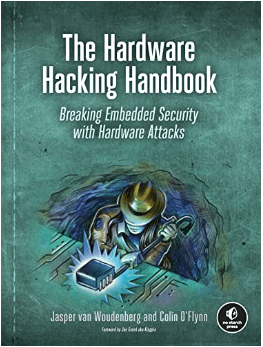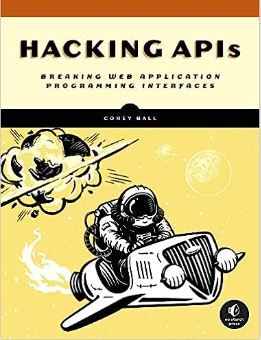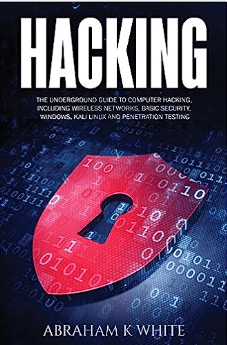Top 10 Best Ethical Hacking Books
Ethical hacking can be described as anything that revolves around cracking into the security walls of a person or organization’s data and using it professionally. This hacking aims to capture and safeguard the precious data that malicious hackers can use for their wrongful actions. Ethical hacking surmises information security, networking systems, and a thorough knowledge of operating systems.
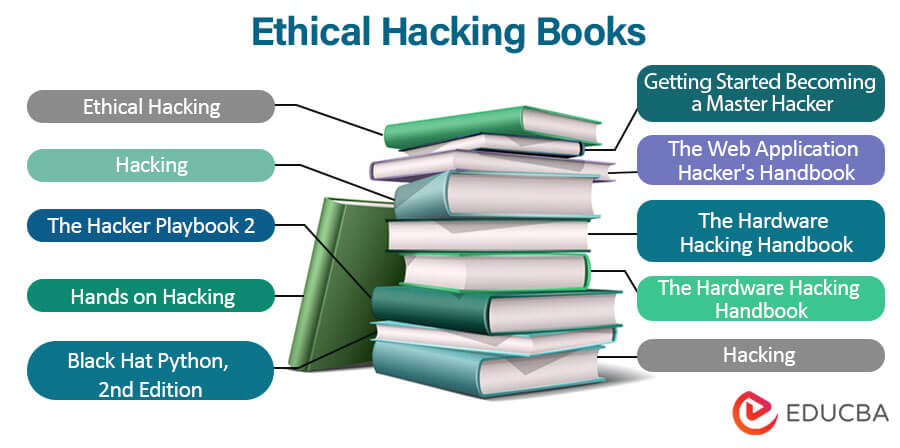
Key Takeaways
- The books mentioned here take the reader through the fundamentals of cryptography, privilege escalation, and breaking through various antivirus software.
- Practice a wide array of tools ranging from Jattack to FMS attack and leverage offensive memory forensic tricks to get to the inside of shell passwords.
- The books listed here will broaden the horizon of your hacking skills to reach new benchmarks in web hacking on web pages, hardware as well as industry-level MNCs.
#1. Ethical Hacking: A Hands-On Introduction to Breaking in
Author -Daniel G. Graham
Book Review
A book that links the key aspects of ethical hacking and presents an immaculate read for people looking to get their hands dirty with the subject. The immense focus of the book has been given to topics that help frequently brush up on cryptography, active directory, SSL, etc. The author presents the information in such a way that leaves the reader bedazzled with experience, thanks to its technical labs and well-put-together content.
Key Takeaways from that book
- Take up hands-on labs to enhance your technical prowess through generous practice labs on penetration testing and security research.
- Deploy Metasploit reverse shells, use mimikatz to capture passwords in the corporate windows, and perform advanced cross-site Scripting attacks that are also flawless, on top of being sophisticated.
#2. Hacking: The Art of Exploitation
Author – Jon Erickson
Book Review
A book that links the key aspects of Ethical hacking and presents an immaculate read for people looking to get their hands dirty with the subject. Erickson underscores the ethical implications of hacking and responsible disclosure. He encourages readers to channel their newfound knowledge for the greater good, emphasizing the importance of ethical hacking in safeguarding digital environments and contributing positively to the cybersecurity community.
Key Takeaways from that book
- Grasp fundamental computer workings, vital for effective vulnerability exploitation.
- Explore buffer overflows, format string vulnerabilities, and shellcode development.
- Explore advanced concepts like Return-Oriented Programming (ROP).
#3. The Hacker Playbook 2: Practical Guide to Penetration Testing
Author– Peter Kim
Book Review
The hacker playbook is helpful when learning about the basics of pen-testing through Python in the intuitive format of an athlete’s playbook. It contains an overall good structure of contents that are easy to go through and navigate. the major highlights include setting up pentest boxes, privilege escalation, and varieties of network attacks.
Key Takeaways from that book
- This book provides customizable code blocks to learn from, the hands-on building of a lab, and how to breach multiple security layers.
- The book excels at creating lifelike scenarios that replicate real-world hacking situations.
- Learn to set up your boxes, curate additional servers and analyze Gitrob through the GitHub analysis section, which is amongst the best parts of this book.
#4. Hands-on Hacking: Become an Expert at Next Gen Penetration Testing and Purple Teaming
Author– Matthew Hickey, Jennifer Arcuri
Book Review
A contemporary guide to learning about hacking through fun scripts and codes. Learn to get your expectations surpassed with the introduction of each new chapter that gives you a comprehensive analysis of how to practice the mindset and toolbox of a real-life hacker. Meant for technical enthusiasts and industry specialists alike.
Key Takeaways from that book
- Get yourself well acquainted with the various professional hacker techniques, and identify and break vulnerabilities and loopholes in the security system of big organizations.
- Overlays the introduction to external network perimeters, delves deep into the sea of organization breaching and invaluable hacking skills.
#5. Black Hat Python, 2nd Edition: Python Programming for Hackers and Pentesters
Author– Justin Seitz, Tim Arnold
Book Review
Deep dive into an illuminating experience of creating and reiterating Python code to be the next-level IT professional. The arsenals of learning the same require security coverage, packet sniffing, and building trojans in this exciting and engaging book.
Key Takeaways from that book
- The newer version comes equipped with Python 3. x, bit shifting, and a glimpse of computer vision libraries intended to understand some of the basic offensive strategies for hacking.
- Build a trojan server using GitHub, learn to sandbox, use memory forensic tricks to gain access to password-protected data, etc.
#6. Getting Started Becoming a Master Hacker: Hacking is the Most Important Skill Set of the 21st Century
Author– Occupytheweb
Book Review
This book revisits the history of hacking and familiarizes you with its efficient tools and techniques. A very well-put-together, insightful, and thought-provoking guide to anyone wanting to uplift their hacking skills in Linux.
Key Takeaways from that book
- It contains an antivirus evasion guide, and reconnaissance, effectively covering a hacker’s footsteps and briefings from social engineering.
- Understand from the viewpoint of history one of the biggest security attacks into NSA’s eternal blue and get valuable insights from the same.
#7. The Web Application Hacker’s Handbook: Finding and Exploiting Security Flaws
Author– Dafydd Stuttard, Marcus Pinto
Book Review
This book serves as a useful guide in upscaling the proficiency of a web application hacker by granting access to information that is accurate, precise, and professionally golden. It lets the user get into the nitty gritty of modern protocols and features a step-by-step learning model with its new outlook on preexisting concepts.
Key Takeaways from that book
- Practice perfect progression with its commence on building the foundations of practicing various tools before working on it such as JAttack, UI redress, hybrid file attacks, etc.
- You can practice the attacks mentioned in the book simultaneously with the help of a companion website hosted by the authors.
#8. Hardware Hacking Handbook, The: Breaking Embedded Security with Hardware Attacks
Author– Jasper van Woudenberg, Colin O’Flynn
Book Review
A show and tell kind of book in its very essence in the way it guides the reader through the process of identifying hardware attacks and then giving a demo of the hacks on real hardware devices. Feel the robust enactment of threat modeling, attack trees, and differential power attacks on a multitude of real devices.
Key Takeaways from that book
- The book highlights include setting up a test lab, multiple useful tools, and devices, hardware and electronics fundamentals, etc.
- An eye-opener on common attacks, data extraction, types of fault injections, how to get started for analyzing a board, etc.
#9. Hacking APIs: Breaking Web Application Programming Interfaces
Author– Corey J. Ball
Book Review
Bring your copy of this easy-to-follow-through book with light, digestible content that will make you a contender in hacking APIs. An invaluable gem that imparts valuable insights and progresses you through hands-on labs to ensure you have mastered the intricacies of the subject matter.
Key Takeaways from that book
- Further your learnings in REST and GraphQL APIs along with their authentication mechanisms and injection vulnerabilities.
- Perform multiple API attacks like JSON web token attacks, and attack GraphQL API to classify the data exposure vulnerability thoroughly.
#10. Hacking: The Underground Guide to Computer Hacking
Author– Abraham K. White
Book Review
With a general guidance tutorial and an excellent resource manual, this book is here to stay on your shelf for a long time. It goes through a plethora of ways that a hacker can get into your pc and suggests an even greater number of safeguarding ways to protect yourself in the cyber sea.
Key Takeaways from that book
- Combining ethical hacking and wireless hacking resources to speculate flaws in websites and applications,
- Get to know attacking frameworks and specific vulnerabilities in your device system with discrete mentions of WEP, WPA, WPA2, etc.
Recommended Books
Our Best 10 Ethical Hacking Books compilation aims to be helpful to you. For an extensive list in the category, EDUCBA recommends the following,
